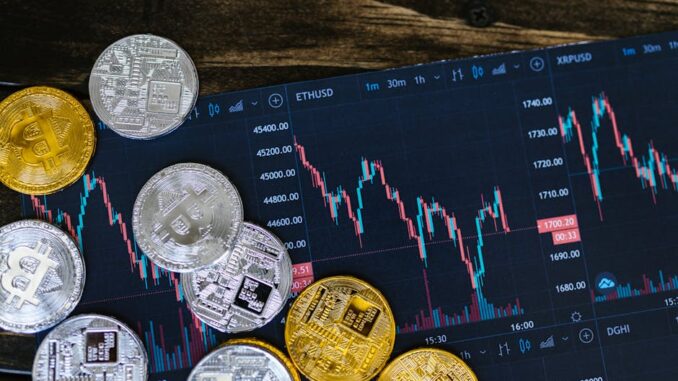
In a significant stride towards modernizing its financial infrastructure, Pakistan has unveiled the Pakistan Virtual Assets Regulatory Authority (PVARA). This independent body is tasked with licensing and regulating virtual asset service providers, including cryptocurrency exchanges and token platforms, marking a pivotal moment in the nation’s digital economy.
Formation of PVARA
The establishment of PVARA follows the approval of the Virtual Assets Ordinance, 2025, signed into law by President Asif Ali Zardari on July 8, 2025. This ordinance, enacted under Article 89 of Pakistan’s Constitution, serves as an urgent measure while Parliament is not in session and will remain effective for 120 days unless extended or replaced by an act of Parliament. The creation of PVARA signifies Pakistan’s proactive approach to integrating digital assets into its financial ecosystem.
Mandate and Structure
PVARA’s primary responsibilities include:
- Licensing and supervising virtual asset platforms such as crypto exchanges, wallets, decentralized finance (DeFi) services, and token issuers.
Investor Identification, Introduction, and negotiation.
-
Enforcing stringent anti-money laundering (AML) protocols and cybersecurity regulations.
-
Ensuring alignment with international financial guidelines, notably those of the Financial Action Task Force (FATF).
The authority’s governing board comprises key figures:
-
Governor of the State Bank of Pakistan.
-
Secretaries of the Ministries of Finance, Law and Justice, and Information Technology and Telecommunication.
-
Chairpersons of the Securities and Exchange Commission of Pakistan (SECP), Federal Board of Revenue (FBR), and Digital Pakistan Authority.
Additionally, two independent directors with expertise in virtual assets, law, finance, or technology will be appointed by the federal government. The board’s chairperson will be selected based on demonstrated experience in finance, law, technology, or regulatory affairs.
Regulatory Framework and Compliance
The formation of PVARA is a strategic move to align Pakistan’s digital asset landscape with global standards set by organizations like FATF, the International Monetary Fund (IMF), and the World Bank. The authority is empowered to:
-
Implement a structured licensing regime with specific requirements for incorporation, operational capacity, compliance frameworks, and reporting obligations.
-
Establish a regulatory sandbox to facilitate responsible innovation, allowing emerging technologies and business models to be tested under supervisory oversight.
-
Issue no-action relief letters under defined conditions to promote experimentation while preserving regulatory accountability.
To ensure compatibility with Islamic finance principles, the law mandates the formation of a Sharia Advisory Committee. This committee will advise PVARA on matters related to the Sharia compliance of virtual asset products and services. Licensed entities offering Islamic financial products will be bound by the rulings issued by the committee.
Strategic Initiatives and International Collaboration
The creation of PVARA builds upon recent steps taken to modernize Pakistan’s financial ecosystem, including:
-
The launch of the Pakistan Crypto Council (PCC) earlier this year.
-
A pilot initiative for a Central Bank Digital Currency (CBDC).
-
Exploration of Bitcoin reserves and blockchain integration in public finance.
In April 2025, the PCC appointed Changpeng Zhao, co-founder and former CEO of Binance, as a strategic adviser. Zhao’s involvement brings technical expertise, regulatory insight, and visibility to the PCC’s framework development, especially in areas such as centralized exchange oversight, Know Your Customer (KYC) integration, and custody solutions.
Utilization of Surplus Energy
Pakistan is also planning to utilize its surplus electricity by supporting Bitcoin mining and AI data centers. This initiative comes as the country faces high electricity tariffs and overcapacity in its energy sector, exacerbated by the increased adoption of solar energy. Talks are underway with several mining firms, and mining center locations will be chosen based on regional excess power availability. Changpeng Zhao’s advisory role includes supporting blockchain infrastructure, regulatory frameworks, and national digital initiatives. Pakistan, with an estimated 15-20 million crypto users and ranking high among global crypto adopters and freelancers, aims to boost innovation through regulatory sandboxes. Saqib emphasized the potential for economic growth, job creation, and increased digital exports through youth upskilling in blockchain and AI, positioning the country as a global tech talent hub.
Implications for Pakistan’s Digital Economy
The establishment of PVARA is a landmark step in shaping a secure, inclusive, and innovation-friendly digital financial ecosystem. It ensures that technological progress is matched with institutional readiness and public interest safeguards. This initiative reflects Pakistan’s commitment to fostering innovation while ensuring regulatory compliance, positioning the country as a competitive player in the global digital economy.
References
-
“Pakistan central bank to launch pilot for digital currency, says governor.” Reuters, July 9, 2025. (reuters.com)
-
“Pakistan pitches Nobel, crypto and rare earths to woo Donald Trump.” Financial Times, July 2025. (ft.com)
-
“Pakistan turns to bitcoin miners, AI data centers to use surplus power.” Reuters, April 9, 2025. (reuters.com)
-
“Federal Government Establishes Regulatory Authority for Crypto and Digital Assets.” PakTribune, July 10, 2025. (paktribune.com)
-
“Authority to regulate crypto and digital assets formed.” Dawn, July 10, 2025. (dawn.com)
-
“Pakistan Virtual Assets Regulatory Authority.” Wikipedia. (en.wikipedia.org)
-
“Cabinet Approves Virtual Assets Regulatory Authority to Oversee Crypto Sector.” The Standard. (thestandard.com.pk)
-
“Pakistan approves virtual assets regulatory authority to boost crypto economy.” Daily Pakistan, July 8, 2025. (en.dailypakistan.com.pk)
-
“Committee tasked with forming laws for crypto.” Dawn, June 3, 2025. (dawn.com)
-
“Pakistan allocates 2,000 megawatts of electricity to bitcoin mining, AI data centres.” Reuters, May 25, 2025. (reuters.com)


Be the first to comment